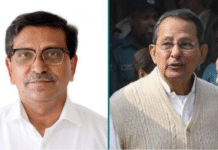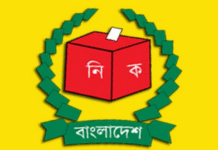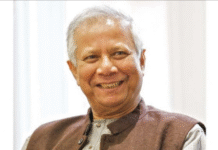
Country’s hydrocarbon exploration bidding, which was announced December last, received poor response as only two international oil companies (IOCs) –- US-based ConocoPhillips and the Indian ONGC Videsh — submitted bids separately for three offshore shallow blocks on Tuesday, the closing day.
Of the three blocks, ConocoPhillips, which already remain engaged in exploration in deep sea block 10 and 11, submitted bid for block No.SS-07 while the Indian ONGC’s offers were found for blocks No.SS-04 and SS-09 in the Bay of Bengal. All the three blocks are located in areas in the Bay where there is no dispute with neighbouring India or Myanmar.
The last year’s verdict by ITLOS (International Tribunal for the Law of the Seas), through which maritime dispute with Myanmar was resolved, paved the way for Bangladesh inviting the bidding.
Initially, a total of 12 blocks were placed for the bidding under the `Bangladesh Offshore Bidding Round 2012’. Of the blocks, nine are in shallow sea and three in deep-sea in the Bay.
But later, bid submission for three deep-sea blocks was postponed for bringing a revision into some of the provisions of the model production sharing contract (PSC) to make them “more attractive” to the IOCs.
As a result, only nine shallow blocks were opened for bid submission by an extended deadline of April 2. Despite extension in the bidding time, Petrobangla eventually received offers from only two companies for the three blocks.
Interestingly, about 14 IOCs, many of whom are internationally reputed, initially shown keen interest to bid and also had participated in the pre-bid meeting. But finally, they did not come.
“Possibly, many of them finally did not come to participate in the bidding because of non-availability of adequate data of the offshore blocks,” said Petrobangla chairman Dr. Hussain Monsur while clarifying the reasons for poor response.
Petrobangla director (PSC) Imaduddin informed that ConocoPhillips, which bid for block SS-07, offered about 2,350 line km 2D (two dimensional) seismic survey, 500 square km 3D survey and drilling of one well in its initial exploration period.
For this, the US-based company provided bank guarantee of US$ 40 million as commitment for work and also proposed an expenditure of similar amount for the total work.
The Indian ONGC submitted proposal of 2,700 line km 2D seismic survey, 200 square km of 3D survey and also drilling of two wells for block No.SS-04 in initial five years and subsequent three years. It provided a bank guarantee of US$ 58 million as commitment for work. The same amount was mentioned as its expense for the work.
The ONGC’s offer for block No.SS-09 is to conduct 2D seismic survey in 2,850 line km area, 300 square km 3D survey and also drilling of total three wells (one in initial period of five years and two in subsequent three years). The company has submitted US$ 85 million bank guarantee along with a program of spending the same amount in works.
As per provision of the Model PSC, the IOC can take maximum 55 percent of total gas produced in any field for its cost recovery purpose in a calendar year. In all the three blocks, the state-owned Petrobangla will have 10 percent carried over interest.
Imaduddin said the Petrobangla has a plan to complete the evaluation of the IOCs’ offers by May 2 this year and signing of contracts with the IOCs by July 15 to utilise the coming winter for conducting exploration works in the selected blocks of the Bay.
He also mentioned that the revision to the PSC for deep sea blocks will be completed by next one month and then the IOCs will be invited to submit bid for three deep sea blocks.
Certain amendments like raising gas price to US$ 6.6 from the existing offered rate of US$ 5.5 per thousand cubic feet (mcf), waiver of corporate tax and also permission for sale of 50 percent of the IOC’s gas to third party within the country are going to be included in the revised model PSC for deep sea blocks.
The existing Model PSC does not allow any export of gas and the IOC is obliged to sell its gas to Petrobangla. If Petrobangla refuses, then they can choose a third party buyer within the country.
Source: UNB Connect









